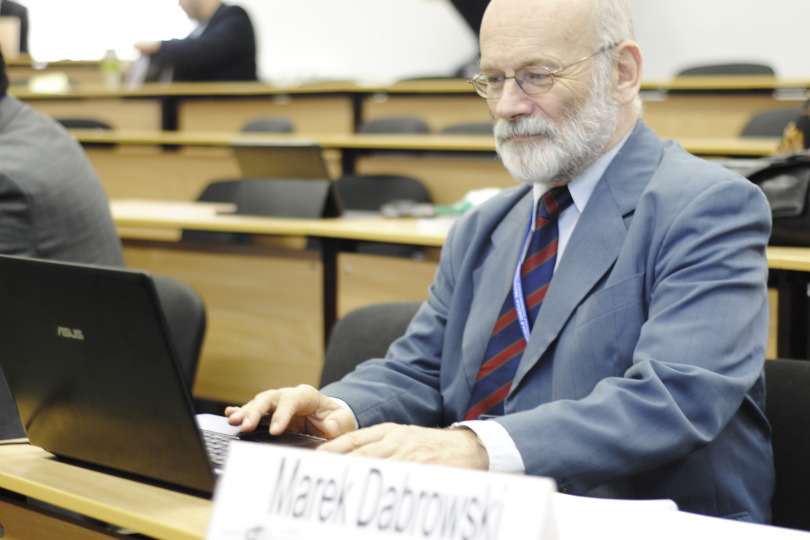
Central Banks Need to Take Action to Fight Climate Change
Hubert Kempf, Professor of Economics at the Ecole Normale Supérieure Paris - Saclay (France) and Academic Supervisor of HSE International Laboratory for Macroeconomic Analysis (IMLA), will speak about the greening of monetary policy at ameeting of theDiscussion Club on Modern Economic Policy on November 25. In his interview, Professor Kempf spoke about the work of IMLA, the development of macroeconomics, and the role central banks can play in combatting climate change.

A Unique Opportunity for Students from Developing Countries
At the HSE Faculty of Economics Professor Marek Dabrowski teaches a Master’s course in Macroeconomic Policy in Transition and Emerging Economies. Global trends are changing and everything from consumer goods to life insurance is available online. Should education follow the trend of immediate online access or is there a special path for it? In December 2014 the course in Macroeconomic Policy in Transition and Emerging Economies was launched on Coursera. Could it help students from less developed countries achieve their career goals? HSE online student magazine Read Square has asked Professor Dabrowski to share his ideas.
Moscow’s Exhilarating Energy Sets Mood at April Conference
Ikka Korhonen, Head of the Research Institute for Economics in Transition, Bank of Finland:‘My interests lie in the area of macroeconomics, and there are a lot of papers being presented at the conference that important for my work.'
‘I Teach a Very Interesting Subject’
Sergey Pekarsky, Professor at the Faculty of Economics Subdepartment of Macroeconomic Analysis, first came to the HSE to get a second higher education, since he did not know where to apply his knowledge of applied mathematics. Fifteen years later, he is about to head the HSE’s Department of Theoretical Economics, and students have voted him one of the best teachers at the HSE.
G. Yavlinsky The Hidden Cause of the Great Recession (And How to Avert the Next One). New Haven, London: Yale University Press, 2011
This book directly confronts uncomfortable questions that many prefer to brush aside: if economists and other scholars, politicians, and business professionals understand the causes of economic crises, as they claim, then why do such damaging crises continue to occur?


Registration deadline - April 30